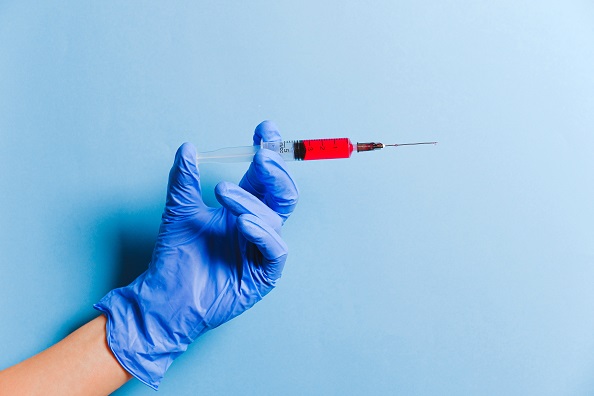It may be possible for doctors to predict schizophrenia with a simple test.
Researchers from the Hebrew University of Jerusalem and Jerusalem’s Shaare Zedek Medical Center that a simple blood test taken after a psychotic episode could make it possible to predict the probability of schizophrenia, leading to early detection, diagnosis and treatment. This marks the first time in history that a biological marker for psychosis has ever been found, and the test the team is suggesting could have a significant impact on the field.
People with schizophrenia may may see or hear things that other people don’t see or hear. They may be overly paranoid, believing that other people are plotting against them or out to get them. They often have grandiose delusions and psychotic episodes during which they lose touch with reality.
The current study was led by Dr. Asael Lubotzky, a senior pediatrician in Shaare Zedek’s Neuropediatric Unit, as part of a doctoral dissertation supervised by two researchers from Hebrew University’s Faculty of Medicine – Professor Yuval Dor and Professor Ruth Shemer – and in collaboration with psychiatrists from the Eitanim Mental Health Center – Dr. Ilana Pelov and Prof. Yoav Cohen. It was published in the journal eLife.

“Imaging studies suggest brain volume loss around the onset and over the first few years of schizophrenia, and apoptosis [cell death] has been proposed as the underlying mechanism. Cell-free DNA (cfDNA) fragments are released into the bloodstream following cell death. Tissue-specific methylation patterns allow the identification of the tissue origins of cfDNA,” they continued. “We developed a cocktail of brain-specific DNA methylation markers biochemical process where a DNA base, usually cytosine, is enzymatically methylated at the 5-carbon position. An epigenetic modification associated with gene regulation, DNA methylation is of paramount importance to biological health and disease.”
Aging as well as environmental and lifestyle influences can induce biochemical changes in the DNA. Frequently, what results is “increased brain cell death, disruption of the blood-brain barrier or a defect in clearance of material from dying brain cells,” the researchers state. “Brain-specific cfDNA methylation markers can potentially assist early detection and monitoring of schizophrenia and thus allow early intervention and adequate therapy.”
The team analyzed dozens of psychiatric patients, 29 of them with a first psychotic attack. Blood samples were taken by Pelov and compared to 31 samples from healthy subjects.
Pelov said, “In our bodies, there are over 200 different types of cells, and when they die, they release free-flowing DNA segments into the bloodstream. A liquid biopsy is a unique blood test that when analyzed can reveal a lot of information about the origin of the dead cells. When we compared the blood tests of patients with a psychotic attack and the samples of healthy people of the same age, we saw a dramatic and statistically significant increase in DNA levels from brain sources in patients with the attack compared to the healthy ones.”
Despite extensive research, no biological markers for schizophrenia have ever been discovered that are able to help with early detection, diagnosis or predicting a patient’s prognosis. “This makes early detection and intervention impossible,” the team wrote.
Sources:
Think you have schizophrenia? A simple blood test can answer


Join the conversation!